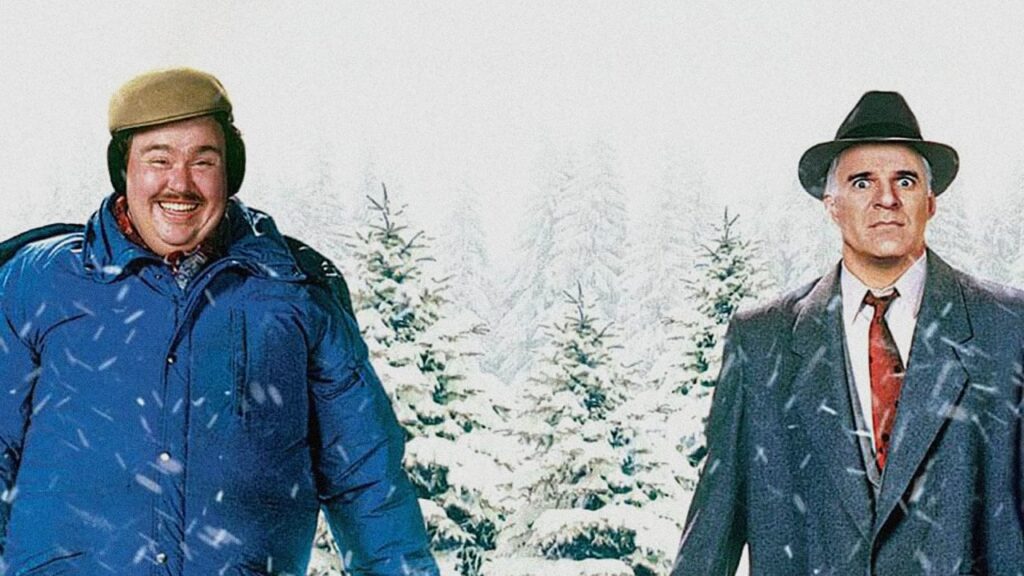There’s a reason why the 1987 film Planes, Trains & Automobiles is a beloved staple of the Thanksgiving season. John Candy’s performance of Del Griffith is both hilarious and heartfelt, and the frustration Steve Martin’s character Neal Page feels about his thwarted travel is eminently relatable. The fact that this riotously funny film also offers a sweet and nuanced view of grief, kindness, and generosity is what elevates the film beyond just a road trip comedy. But Planes Trains & Automobiles also offers some surprising lessons about money within the heartwarming story.
If this classic film is on your Thanksgiving watch list, here are some hidden money lessons to look out for while you laugh.
Wealth can’t protect you from frustration
When we meet advertising executive Neal Page at the beginning of the film, he is at an interminable meeting in Manhattan two days before Thanksgiving. Neal is anxiously checking his watch (an 18-karat gold Piaget Polo 8273) because time is running out for him to make his flight home to Chicago.
Everything we are shown about Neal in the first 10 minutes of the film indicates his high level of wealth—from the posh office building where his meeting is held to his well tailored suit to the fact that he is willing to pay a man $75 (or $208 in 2024 dollars) to take over his cab. And from how Neal acts throughout the film, it becomes clear that he is accustomed to having money pave his way.
But Neal’s first money lesson is that cash doesn’t guarantee a seamless travel experience. Del Griffith accidentally takes his cab (and Neal is still out the $75 he paid the original passenger for it). When he gets on the plane, Neal finds that his seat assignment was bumped to coach from first class and he’s stuck next to Del. And then a blizzard in Chicago reroutes the plane to Wichita.
At every turn, Neal keeps trying to buy his way out of the travel annoyances, only to be thwarted. Part of his aggravation throughout his misadventures stems from the fact that his financial privilege can’t help him get home any faster.
Seek nonfinancial solutions to problems
Although shower curtain ring salesman Del initially seems like an irritating and irresponsible thorn in Neal’s side, he shows his travel savvy when the plane lands in Wichita. While Neal is trying to get transferred to the next flight home, Del has already figured out that there won’t be another plane to Chicago anytime soon and that they will need a hotel room for the night.
Del also realizes that other travelers have already booked up all the available rooms, which means Neal’s usual solution of spending money won’t help. But Del has something Neal doesn’t: a personal connection. Del is able to get a room for them both because he once sold shower curtain rings to the Braidwood Inn and remained friends with the proprietor.
Throughout the film, we see Del solve problems by connecting with other people. He raises some cash by playfully selling some of his wares as “jewelry” and finds a truck driver who is willing to give them a ride the rest of the way to Chicago after their wrecked rental car is impounded in the middle of Illinois.
Although Del certainly causes a number of Neal’s problems on the epic journey to Chicago, he also offers solutions that work when money will not.
Money can insulate you from relationships
One of the most iconic scenes of the movie sets the table for what may be the most important money lesson of all. Neal loses his patience with Del and mocks him in a diatribe that starts out funny but quickly becomes cruel. Del’s dignified response reiterates the character’s commitment to kindness and his rejection of cynicism.
It’s true that Neal would be more comfortable if he’d gotten what he wanted—a hotel room by himself away from his annoying traveling companion. And under normal circumstances, Neal could have purchased that comfortable solitude. But when Del stands up for himself after Neal’s mean comments, it becomes clear that Steve Martin’s character has missed out on something by preferring the independence his money affords him: real connection with others.
Del makes friends wherever he goes, from the fellow passengers on the Greyhound bus (who join him in singing the Flintstones theme) to the Wichita cab driver who takes the scenic route to show off his home town, to Neal himself, who reluctantly bonds with him over the two-day journey.
Had Neal’s trip home gone according to plan, he would have missed out on Del’s friendship—and never learned to appreciate what he has. The independence money offers him may feel more comfortable, but it costs him important insights and connections.
What’s worth more than $17 and a good watch?
When John Hughes wrote Planes, Trains & Automobiles, he wanted to make viewers laugh at the relatable issue of trying to get home in time for a family holiday. But he also created a film that makes the audience question the real value of money.
The wealthy ad executive played by Steve Martin believes he can buy his way out of frustrating situations, only to be stymied by issues that money can’t solve. John Candy’s traveling salesman understands the value of personal connections and friendship. And both the characters and the audience learn that the insulating power of money can keep you from forming new relationships.
Be like Neal and Del this Thanksgiving and open yourself up to new experiences and friendship—but maybe exercise caution before putting your hands between two pillows. Just in case.


